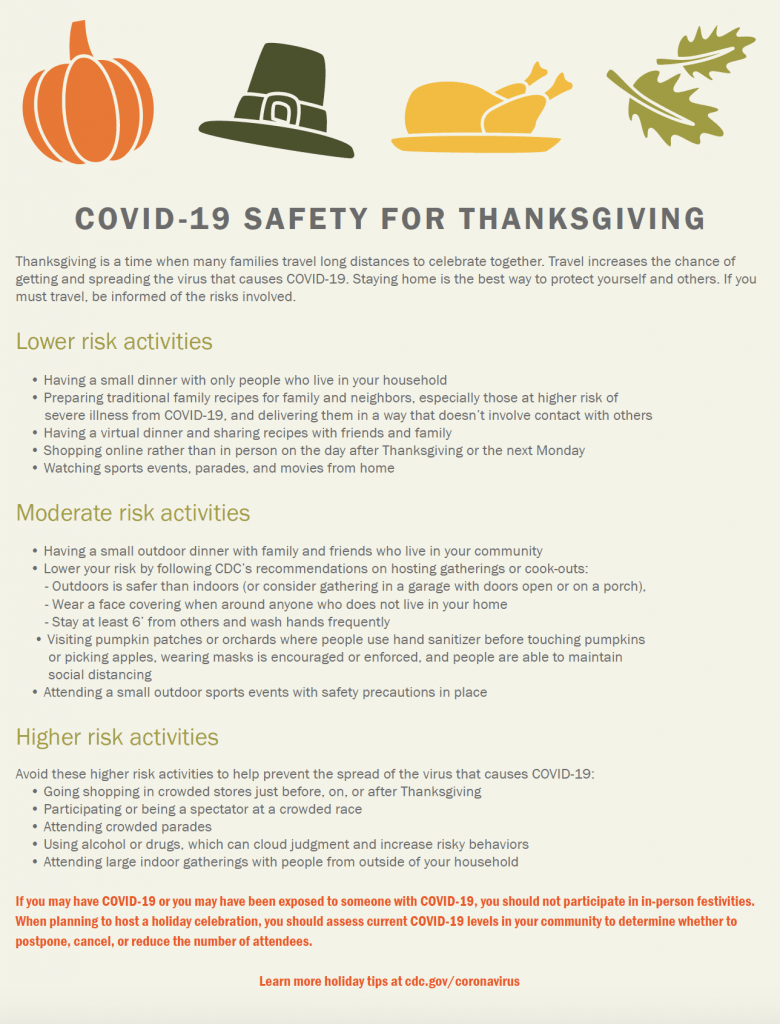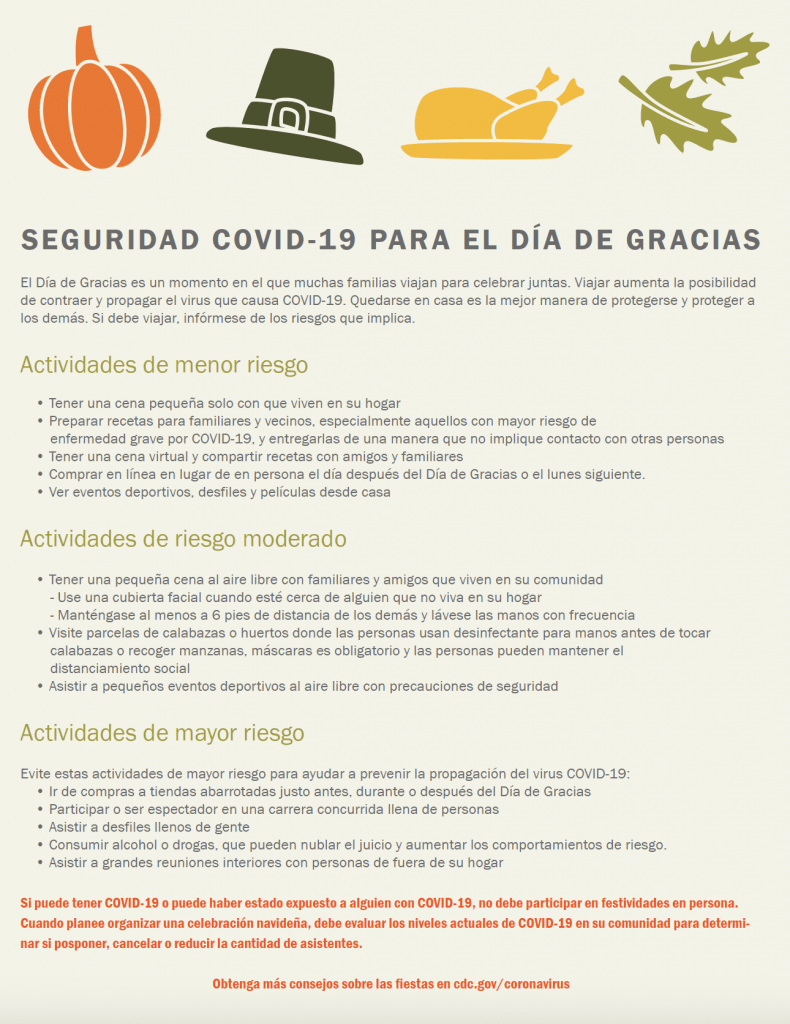Thanksgiving is a special annual event for millions of families each November. This year, Thanksgiving takes place Thursday, Nov. 26, 2020, in the midst of a global pandemic and surging cases of COVID-19 in our community and across the country.
Thanksgiving isn’t canceled, but like a lot of things in 2020, it may need to look a bit different this year. Understanding the risks associated with various Thanksgiving-associated activities is critical to keeping you, your family and the community at large safe this holiday season.
In addition to the standard advice to avoid large gatherings, watch your distance, wear a mask and wash your hands, there are additional ways you can protect yourself and others while enjoying Thanksgiving.
Health experts have put together this guide to help you and your family understand the various levels of risk associated with certain Thanksgiving-related activities. We hope you find this information helpful as you make plans this year.
COVID-19 Safety for Thanksgiving
Thanksgiving is a time when many families travel long distances to celebrate together. Travel increases the chance of getting and spreading the virus that causes COVID-19. Staying home is the best way to protect yourself and others. If you must travel, be informed of the risks involved.
Lower risk activities

- Having a small dinner with only people who live in your household
- Preparing traditional family recipes for family and neighbors, especially those at higher risk of severe illness from COVID-19, and delivering them in a way that doesn’t involve contact with others
- Having a virtual dinner and sharing recipes with friends and family
- Shopping online rather than in person on the day after Thanksgiving or the next Monday
- Watching sports events, parades and movies from home
Moderate risk activities
- Having a small outdoor dinner with family and friends who live in your community
- Lower your risk by following CDC’s recommendations on hosting gatherings or cook-outs:
- Outdoors is safer than indoors (or consider gathering in a garage with doors open or on a porch)
- Wear a face covering when around anyone who does not live in your home
- Stay at least 6 feet from others and wash hands frequently
- Visiting pumpkin patches or orchards where people use hand sanitizer before touching pumpkins or picking apples, wearing masks is encouraged or enforced, and people are able to maintain social distancing
- Attending a small outdoor sports events with safety precautions in place
Higher risk activities
Avoid these higher risk activities to help prevent the spread of the virus that causes COVID-19:
- Going shopping in crowded stores just before, on, or after Thanksgiving
- Participating or being a spectator at a crowded race
- Attending crowded parades
- Using alcohol or drugs, which can cloud judgment and increase risky behaviors
- Attending large indoor gatherings with people from outside of your household
If you may have COVID-19 or you may have been exposed to someone with COVID-19, you should not participate in in-person festivities. When planning to host a holiday celebration, you should assess current COVID-19 levels in your community to determine whether to postpone, cancel, or reduce the number of attendees.
Learn more holiday tips at cdc.gov/coronavirus


